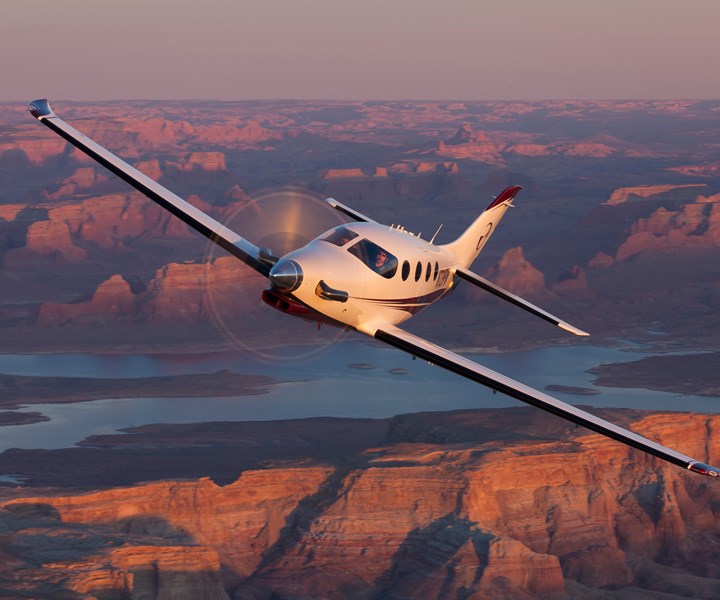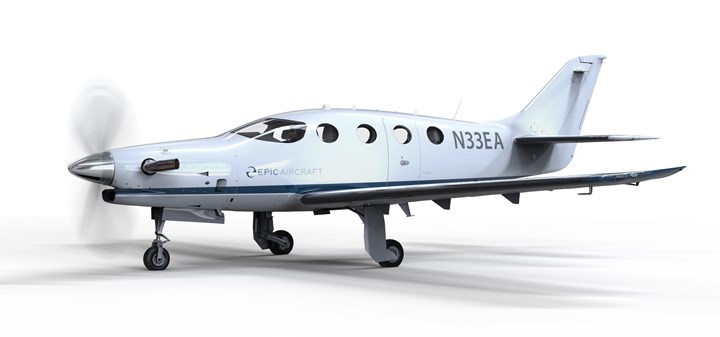Epic Aircraft carbon fiber aircraft achieves FAA type certification
Deliveries of the all carbon fiber single-engine turboprop are scheduled to begin this year.

The new Epic E1000 design is based on the company’s Epic LT aircraft, shown here in flight. Source | Epic Aircraft
Epic Aircraft (Bend, Ore., U.S.) has announced that the Federal Aviation Administration (FAA) has granted Type Certification for its E1000 all carbon fiber aircraft design, concluding a seven-year program that Epic says establishes a new industry standard for performance, price and ramp appeal in the personal aircraft marketplace.
The Epic E1000 is based on the company’s experimental Epic LT model, which was introduced to the market in 2005 through an owner-assist build program based at Epic headquarters.
“Transitioning that design into a certified version was the chance to offer a truly compelling product to the industry, a ‘no compromises’ aircraft that customers would really want. And they do,” says Doug King, Epic CEO.
Epic reportedly has more than 80 confirmed E1000 reservations from around the U.S., as well as from Canada, Mexico, Central/South America, Europe, Russia, South Africa and Australia.

A rendering of the E1000 aircraft. Source | Epic Aircraft
The company also reports that the first seven E1000 customer aircraft are in various stages of fabrication, bonding and assembly, with initial deliveries slated to begin this year.
All Epic manufacturing, engineering and administration operations are based in the U.S., and the company says it has doubled its composite fabrication capacity, invested heavily in tooling, equipment, curing ovens and refined workflows to accelerate E1000 production ramp. The company is currently running two production shifts, with plans to further expand operations. Production Certification is targeted for the first quarter of 2020.
“This is a remarkable accomplishment for our entire community,” says King. “I want to thank our employees, who have worked so diligently to deliver this exceptional design, as well as our partners, suppliers and customers, who have faithfully supported us each step of the way. It has been a true team effort, along with the fantastic support of the FAA.”
Related Content
-
PEEK vs. PEKK vs. PAEK and continuous compression molding
Suppliers of thermoplastics and carbon fiber chime in regarding PEEK vs. PEKK, and now PAEK, as well as in-situ consolidation — the supply chain for thermoplastic tape composites continues to evolve.
-
Jeep all-composite roof receivers achieve steel performance at low mass
Ultrashort carbon fiber/PPA replaces steel on rooftop brackets to hold Jeep soft tops, hardtops.
-
Composites manufacturing for general aviation aircraft
General aviation, certified and experimental, has increasingly embraced composites over the decades, a path further driven by leveraged innovation in materials and processes and the evolving AAM market.

.jpg;width=70;height=70;mode=crop)














